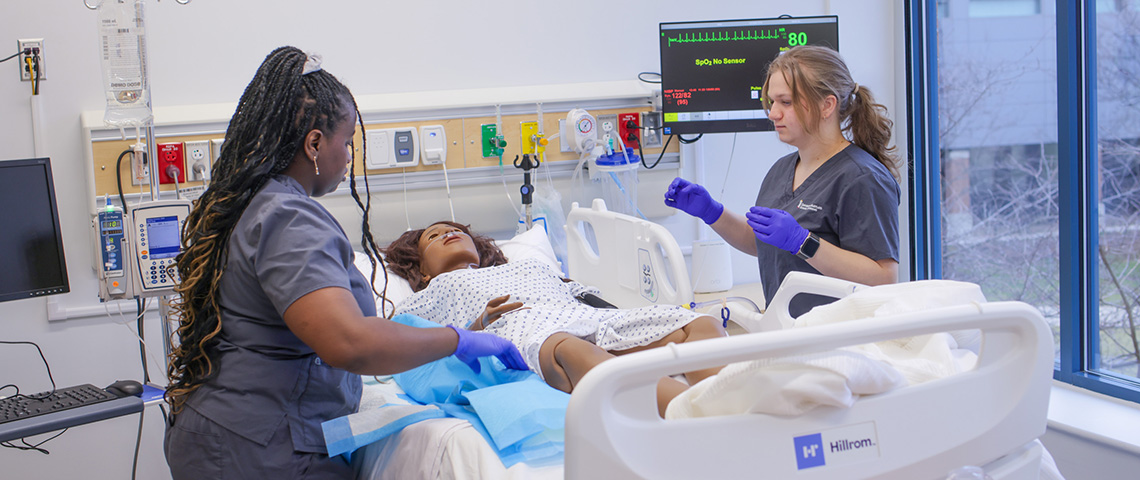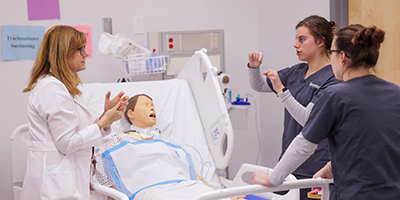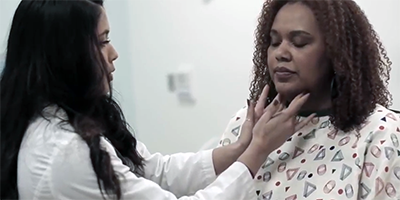Clinical experiences, including those in our clinical simulation labs, Standardized Patient Program, and clinical rotations at various health care facilities, allow students to learn and demonstrate mastery of knowledge, skills, and abilities in authentic professional situations while under supervision. Ensuring students gain essential experiences in simulated environments is critical to preparing a skilled nursing workforce and to improving health care outcomes.
Simulation & Learning Labs

Simulation is a learner-centered, interactive teaching strategy replicating care in various clinical settings.
Clinical Simulation Labs

28 state-of-the art facilities* where students develop their clinical decision-making skills in a controlled, life-like environment under faculty guidance.
*including eight at the Universities at Shady Grove (archive)
Learn More Clinical Simulation LabsStandardized Patient Program

A facility made to look like a real clinic where students practice patient history-taking, assessment, and difficult conversations with standardized patients, people trained to portray patients for clinical instruction and assessment.
a joint venture of the University of Maryland Schools of Nursing and Medicine
Learn More Standardized Patient ProgramWhat You'll Learn
Simulation experiences are fully integrated into our curriculum. These experiences:
- build competency and confidence, clinical skills, and decision-making abilities without the potential for compromising patient safety
- allow students to experience rare and critical events that they may never see during their nursing education but may very well experience in their careers as nurse clinicians
- prepare students for clinical placements and augment the limited number of clinical sites
Simulation also plays an important role in allowing seasoned practitioners, such as Doctor of Nursing Practice students, to develop new skills and expand their abilities.
How It Works
Successful student performance in a clinical experience includes working under a variety of constraints, such as time pressure and case complexity.
To obtain properly balanced and comprehensive clinical experiences, students will be expected to adapt to a variety of workplace locations, environments, preceptor styles, and work schedules, which may include early and late schedules, and night, weekend, and holiday rotations.